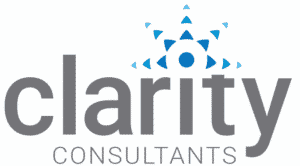
Most people understand, at least on a basic level, that adults and children don’t learn the same way. One of the primary reasons for the difference is the sheer amount of life experience an adult has compared to a child. Additionally, maturity level and the number of obligations they are juggling play a role.
However, many organizations rely heavily on training approaches that are reminiscent of the childhood classroom experience. As a result, they may not achieve their learning and development (L&D) goals.
Luckily, by understanding what really impacts how adults learn, you can adapt, creating a training approach that aligns with how your employees think and retain information. With that in mind, here’s a look at what genuinely influences adult learning.
Authority vs. Equal
With children, teachers are genuinely considered an authority. Kids don’t always feel secure in the world around them, and may not have the strongest sense of self, as that is still developing.
Adults are different. They have a solid sense of self and are confident in their ability to move about in the world. Additionally, they may feel secure in their existing knowledge, as well as what experience has taught them over time.
Treating adult learners like children often backfires. You can’t assume they’ll view an instructor as an authority, especially if they aren’t complete novices when it comes to the subject. Often, treating them as an equal is the better approach, as it offers respect for their current knowledge and experience instead of incidentally dismissing it.
Agendas and Engagement
With children, learning is expected. Most kids understand that going to school and participating in what their parents want them to do, and that can be enough to keep them relatively focused and engaged. Plus, the experience is classically part of childhood for most, so there is peer support as well. In many cases, that’s enough to maintain satisfactory engagement.
That isn’t always the case with adults. Unlike kids, adults aren’t simply succumbing to a traditional paradigm. Instead, there’s usually another source of motivation or a driving agenda at play, something that is more personal instead of societal.
For example, adults may be trying to further their careers, so personal gain serves as motivation. At times, it is a personal interest in a topic that drives them to participate. In either of those cases, engagement can be fairly high. The learning isn’t happening for its own sake. Instead, it’s aligned with a broader agenda.
If they are learning under duress, as can happen with required learning that an adult doesn’t deem relevant, they may participate, but their willingness will dwindle. Retention also tends to be lower, as the experience is viewed as a waste of time and energy instead of beneficial.
Ultimately, by finding ways to align training with a learner’s personal agenda, effectiveness increases dramatically. Essentially, you can harness their internal motivation, allowing it to work to advance everyone toward their goals.
Are You Looking to Revamp Your Training Based on How Adults Learn?
Many companies create training using an approach that mimics the school experience. Regretfully, that strategy isn’t always ideal. If you need help from learning experts to update your plan and methods based on how adults learn, the staff at Clarity Consultants is available to assist.
At Clarity Consultants, we have more than 25 years of experience in the world of L&D. Plus, when you work with Clarity, you gain access to skilled candidate search allies that can make identifying ideal job seekers for your open positions easier than ever before.
If you want to connect with top L&D talent who can take your training to the next level, the team at Clarity Consultants can help. Contact us today.

